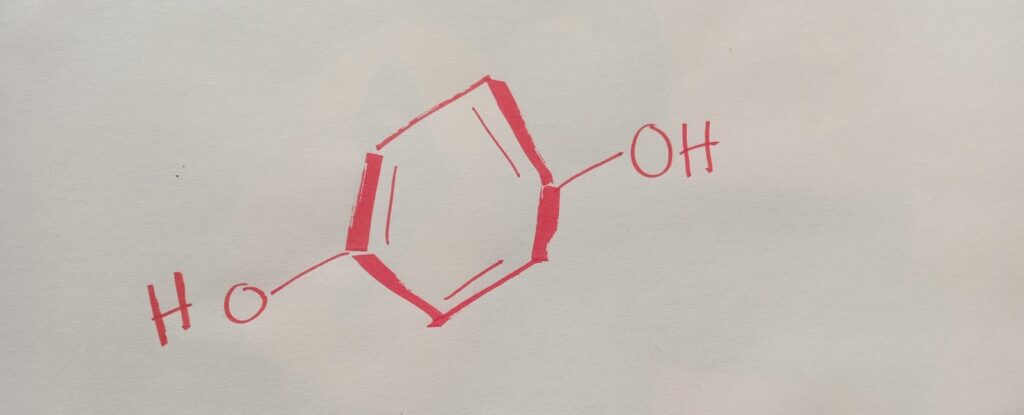🧴 Hydroquinone Cream NZ: For Melasma & Hyperpigmentation
Introduction to Hydroquinone use in treating pigmentation
Many people struggle with skin concerns like uneven skin tone, dark spots, and hyperpigmentation, which can have a significant impact on self-confidence and overall well-being. These issues often stem from excess melanin production in the skin, triggered by factors such as sun exposure, hormonal fluctuations, and skin irritation. When the skin produces too much melanin unevenly, it can result in visible dark spots, age spots, and patches of uneven skin tone—common signs of hyperpigmentation and melasma.
Hydroquinone cream is widely recognized as a skin bleaching agent that can effectively treat hyperpigmentation, melasma, and age spots by targeting excess melanin. However, because hydroquinone can also cause irritation and increase sensitivity to the sun, its use should always be combined with strict sun protection, and it’s important to carefully weigh the pros and cons. While it can offer short-term improvement, the results often don’t last — and in many cases, the pigmentation can even worsen over time.
Hydroquinone Products for Hyperpigmentation & Melasma Treatment options
Hydroquinone cream is the gold standard ✨ for treating hyperpigmentation. You may have already tried it, and chances are, you had a honeymoon phase 🌞 where your skin cleared up and everything looked brighter.
But for many people, that phase doesn’t last. ⚠️ If you’re still tempted to use it, proceed with caution. Sun protection becomes non-negotiable. 🧴☀️ Apply SPF every two hours, wear a wide-brimmed hat 👒, or ideally, stay indoors during peak sun hours. Most dermatologists recommend avoiding hydroquinone in summer, as sun exposure can quickly undo your progress. You might feel amazing in winter, and see pigmentation return in summer. 🌤️ I’m not saying it happens every time, but it happens often enough to take precautions seriously.

🌿 What Are Hydroquinone Products?
Hydroquinone isn’t just a cream, it comes in a range of skincare formats: creams, gels, and lotions. These hydroquinone products are all designed to do the same thing – fade dark spots and rebalance uneven skin tone. Some are compounded by pharmacists, others are part of custom blends with retinoids or steroids. In New Zealand, you can only access these products by prescription, which helps reduce the risk of misuse and side effects. Always talk to a doctor before using hydroquinone.
❓ What Is Hydroquinone?
Hydroquinone is a skin-lightening agent that reduces melanin (pigment) production. It’s used to treat:
It comes in creams, gels, and lotions, applied directly to dark spots.
⚙️ How Does It Work?
Hydroquinone blocks the enzyme tyrosinase, which your skin needs to produce melanin. 🔬
By slowing melanin production, it fades dark spots over time and helps even your overall tone.
💠 Hydroquinone for Melasma: A Closer Look
Melasma is considered to be one of the most challenging pigmentation conditions, and hydroquinone is still the #1 recommended treatment by many dermatologists. Why? Because it’s the only chemical substance clinically proven to fade skin pigmentation. When used consistently (and with strict sun protection), hydroquinone for melasma can deliver results. But it’s not a magic bullet. If your melasma is hormone-driven or worsens in summer, maintenance and prevention are just as important as treatment, and you should always consider the adverse effects. Paradoxically, one of them is the worsening of your hyperpigmentation. If you’re using hydroquinone for hyperpigmentation, remember to take into account all of these factors.
🇳🇿 Is Hydroquinone Cream Legal in New Zealand?
✅ Yes—but only by prescription.
You’ll need to consult a doctor 🩺 because while it’s effective, it’s also strong enough to cause side effects if misused.
🌍 Regulations Around the World
| Country/Region | Status |
|---|---|
| 🇳🇿 New Zealand | Prescription only |
| 🇦🇺 Australia | OTC at 2%, higher by script |
| 🇪🇺 EU & UK | Prescription only |
| 🇺🇸 USA | Prescription only |
| 🇯🇵🇿🇦 Japan, South Africa | Prescription only |
💡 What Skin Concerns Can It Help With?
Hydroquinone is best for epidermal hyperpigmentation—pigment close to the surface of the skin.
| Condition | ✅ Effectiveness |
|---|---|
| 🌺 Melasma | Very effective, often used in combinations |
| 🌞 Sunspots / Age Spots | Works well with consistency |
| 💥 Acne Marks (PIH) | Excellent results |
| 🌼 Freckles | Can fade, but may return |
👉 Effectiveness is evaluated separately from risks.
So a product can be effective but still be banned due to side effects or post-treatment issues. 🧪⚠️
🚫 Why Was Hydroquinone Banned—And Why Did Some Countries Bring It Back?
Hydroquinone has been a popular solution for decades, but long-term use raised concerns.
🔵 Exogenous ochronosis (a rare permanent darkening of skin) and ☠️ potential cancer risk (in animal studies) led to bans.
- 🇺🇸 Removed from shelves in 2020 under the CARES Act—now prescription only
- 🇪🇺 Banned in cosmetics since 2006
- 🌍 Other countries followed due to safety & misuse concerns
Some countries have since allowed it under medical supervision 👨⚕️, recognizing:
- It’s still one of the most effective melasma treatments
- Bans can push people toward unregulated or counterfeit products 🧪💊
🧭 Bottom line: Hydroquinone is powerful—but not for everyone.
✅ How to Use Hydroquinone Cream Safely
📌 Follow these steps:
- 🧼 Clean skin and pat dry
- 💧 Apply a thin layer to dark spots only – Hydroquinone cream should only be applied to affected areas or as prescribed.
- 🕑 Use once or twice daily (as directed)
- 🚫 Avoid eyes, lips, broken or irritated skin
- ☀️ Always use sunscreen
- ⏳ Use for short periods (3–4 months), then take a break
⚠️ Key Precautions
- 🧪 Patch Test: Try on your forearm first
- ☀️ Avoid Sun: Use broad-spectrum SPF daily
- ❌ Don’t Use on Irritated Skin
- ⏱️ Limit Duration: No longer than 3–4 months
- 🩹 Watch for Side Effects: Stop if you get itching, burning, or rash
- 👁️ Avoid Eyes & Mouth
- 🚫 Don’t Mix with Harsh Products
- 😬 Sensitive Skin? Check with your doctor
- 🤰 Pregnant or Breastfeeding? Talk to your GP first
📦 Proper Storage Tips
- 🌡️ Store below 25°C (77°F)
- 🌞 Avoid heat, light, and moisture
- 🧴 Close tightly after use
- 🚿 Not in the bathroom
- ❗ Discard if discolored (brown/yellow = oxidized)
🔁 Understanding the Rebound Effect
Hydroquinone can cause pigmentation to bounce back if stopped suddenly 😟
💥 Causes:
- Quitting abruptly
- Long-term use with no break
- Skipping sunscreen
- Using high strengths
🛡️ Prevention:
- Use in 3–4 month cycles, with breaks
- Taper off gradually
- Combine with gentle alternatives during breaks
- NEVER skip sunscreen! ⏰🧴
🔄 Long-Term Use: Can You Keep Using It?
Yes—but only in cycles:
- ⏳ Short cycles (3–4 months)
- 🌿 Alternate with Beauty fields Hyperpigmentation products
- ☀️ Stick to daily SPF
- 👩⚕️ Work with a professional
💬 Questions to Ask Your Doctor
- 🧬 Is it right for my skin type?
- 📉 What strength and duration?
- ⚠️ What side effects should I watch for?
- 🔁 How can I avoid rebound?
- 🧪 Can I combine with other ingredients?
- 🚫 What should I avoid?
- 🤱 Safe for pregnancy/breastfeeding?
- 🌞 What should I use during breaks/summer?
🧾 Quick Reference Table
| 🔍 Topic | 📝 Key Takeaways |
|---|---|
| Main Use | Lightens spots by reducing melanin |
| Application | Apply thinly to affected areas only |
| Precautions | Patch test, use SPF, avoid long-term use |
| Storage | Cool, dry place; toss if discolored |
| Rebound Risk | Cycles, taper off, sun protection critical |
| Long-Term Strategy | Use in cycles, combine with gentle ingredients |
| NZ Law | Prescription only—consult a doctor |
⚖️ Pros and Cons of Hydroquinone
| ✅ Pros | ❌ Cons |
|---|---|
| Very effective for most pigmentation types | Can cause rebound pigmentation |
| Works fast—results in 4–12 weeks | Skin irritation (redness, dryness, burning) |
| Affordable | High sun sensitivity—requires strict SPF |
| Prescription strength available | Not for long-term use |
| Pairs well with retinoids/steroids | Risk of ochronosis (rare skin darkening) |
| Well-studied | Not safe during pregnancy/breastfeeding (limited data) |
| Used in custom formulas | Requires medical supervision |
🧠 Final Thoughts
Hydroquinone is a powerful treatment for dark spots—but it’s not something to use casually. ⚠️
When used correctly, with sun protection and breaks, it can greatly improve skin tone and confidence. ✨
But misused, it can cause irritation, rebound pigmentation, or worse.
Hydroquinone products in New Zealand (and many countries) are available only with a prescription, for good reason. Do not buy hydroquinone cream online!
🌞 Many people apply SPF and assume they’re protected and still get side effects. It’s not practical to avoid the sun completely, but it’s vital to be vigilant.
👩⚕️ If you’re considering hydroquinone, talk to a doctor first. And remember:
☀️ Sunscreen is your skin’s best friend!
And of course, you can take the easy way and try our hyperpigmentation products: Soap, and Night cream first, you won’t regret it!
